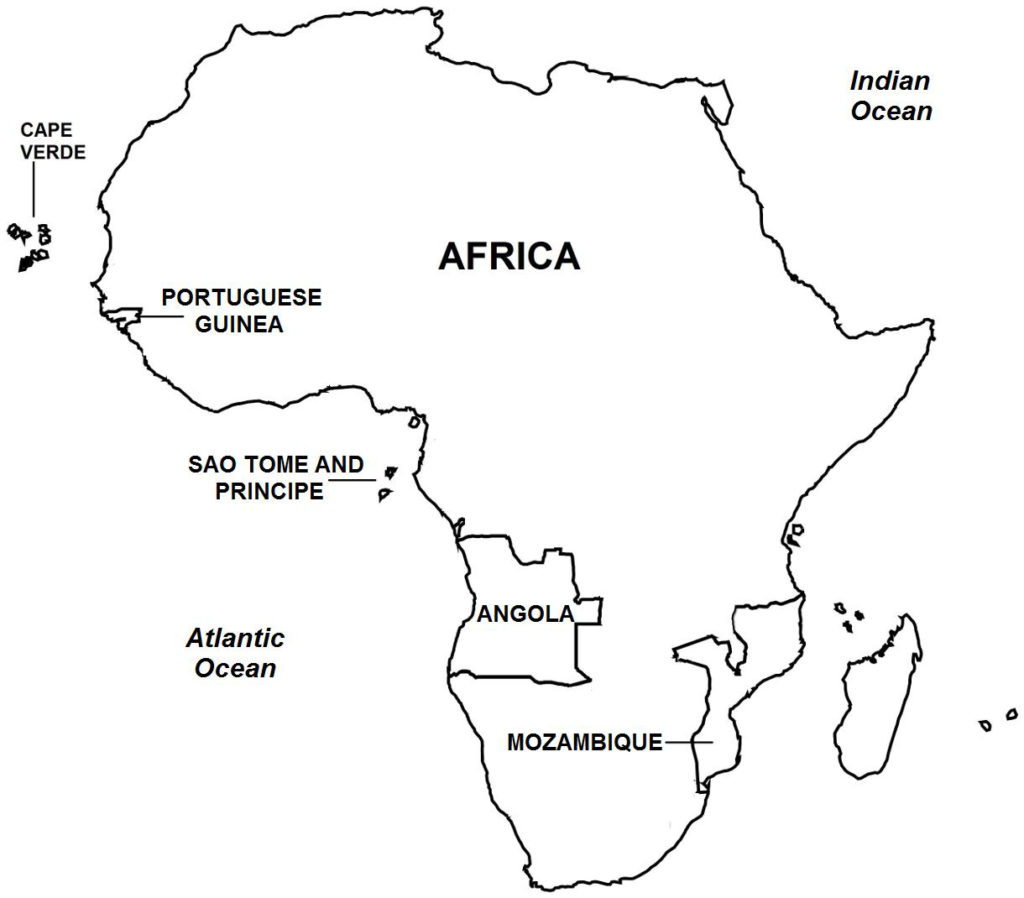On September 24, 1973, Guinea-Bissau declared its independence in the town of Madina do Boe during its ongoing revolution against Portugal (Guinea-Bissau War of Independence) that had begun in January 1963. The infant state was immediately recognized by many African and communist countries.
Guinea’s independence struggle was led by the African Party for the Independence of Guinea and Cape Verde or PAIGC (Portuguese: Partido Africano da Independência da Guiné e Cabo Verde), established in 1956 with the aim of ending Portuguese colonial rule and gaining independence for Guinea and Cape Verde. Initially, the PAIGC wanted to achieve its aims through dialogue and a negotiated settlement. By the late 1950s, however, the Guinean nationalists had become more militant.
The Guinea-Bissau War of Independence forms part of the Portuguese Colonial War.
(Taken from Portuguese Colonial Wars – Wars of the 20th Century – Volume 3)

During the colonial era, Portugal’s territorial possessions in Africa consisted of Angola, Mozambique, Portuguese Guinea, Cape Verde, and São Tomé and Príncipe (Map 24). When World War II ended in 1945, a surge of nationalism swept across the various African colonies as independence groups emerged and demanded the end of European colonial rule. As these demands soon intensified into greater agitation and violence, most of the European colonizers relented, and by the 1960s, most of the African colonies had become independent countries.
Bucking the trend, Portugal was determined to hold onto its colonial possessions and went so far as to declare them “overseas provinces”, thereby formally incorporating them into the national territories of the motherland. Nearly all the black African liberation movements in these Portuguese “provinces” turned their attention from trying to gain independence through negotiated settlement to launching insurgencies, thereby starting revolutionary wars. These wars took place through the early 1960s to the first half of the 1970s, and were known collectively as the Portuguese Colonial War, and pitted the Portuguese Armed Forces against the African guerilla militias in Angola, Mozambique, and Portuguese Guinea. At the war’s peak, some 150,000 Portuguese soldiers were deployed in Africa.
By the 1970s, these colonial wars had become extremely unpopular in Portugal, because of the mounting deaths in Portuguese soldiers, the irresolvable nature of the wars through military force, and the fact that the Portuguese government was using up to 40% of the national budget to the wars and thus impinging on the social and economic development of Portuguese society. Furthermore, the wars had isolated Portugal diplomatically, with the United Nations constantly putting pressure on the Portuguese government to decolonize, and most of the international community imposing a weapons embargo and other restrictions on Portugal. In April 1974, dissatisfied officers of the military carried out a coup that deposed the authoritarian regime of Prime Minister Marcelo Caetano. The coup, known as the Carnation Revolution, produced a sudden and dramatic shift in the course of the colonial wars.
